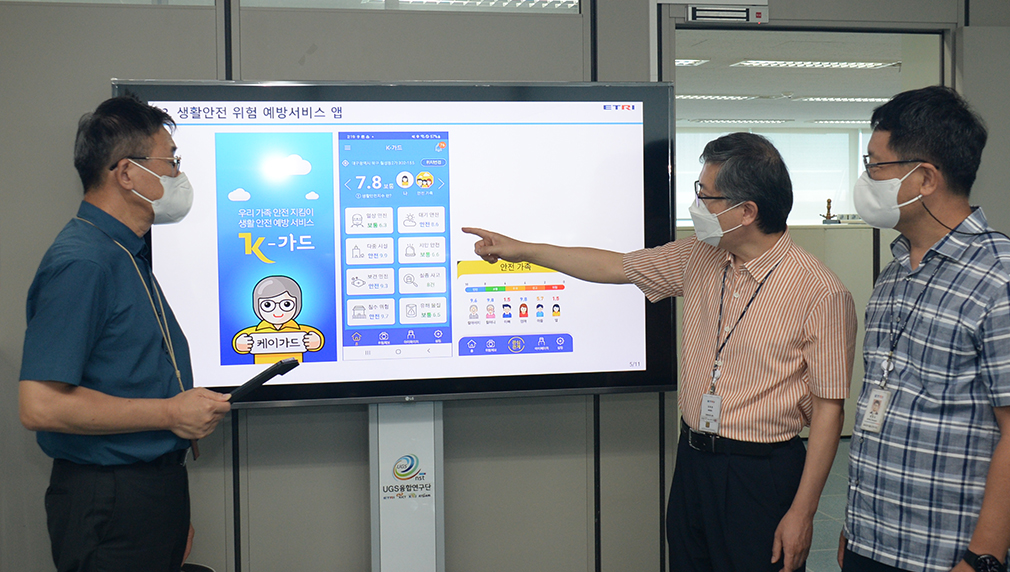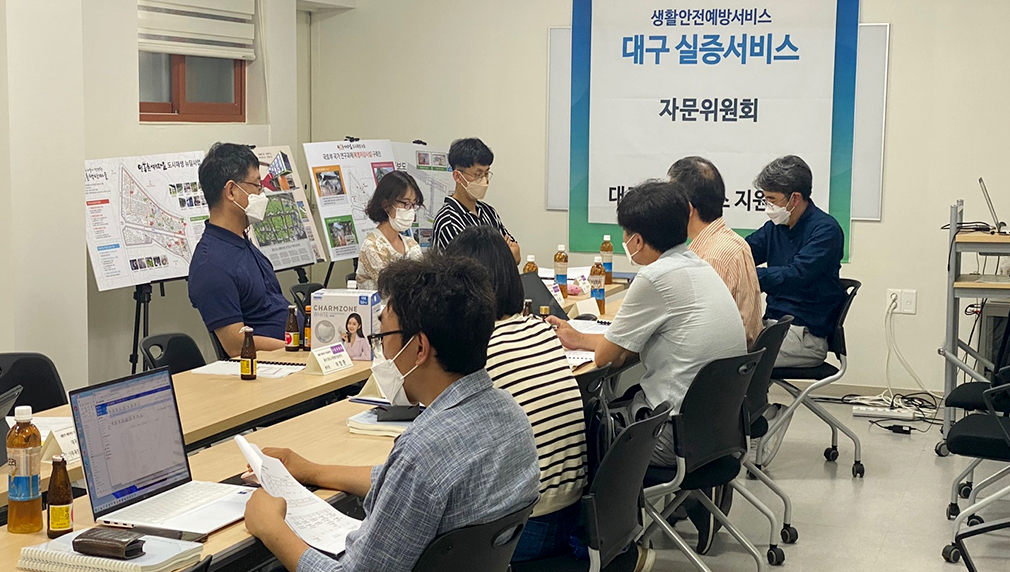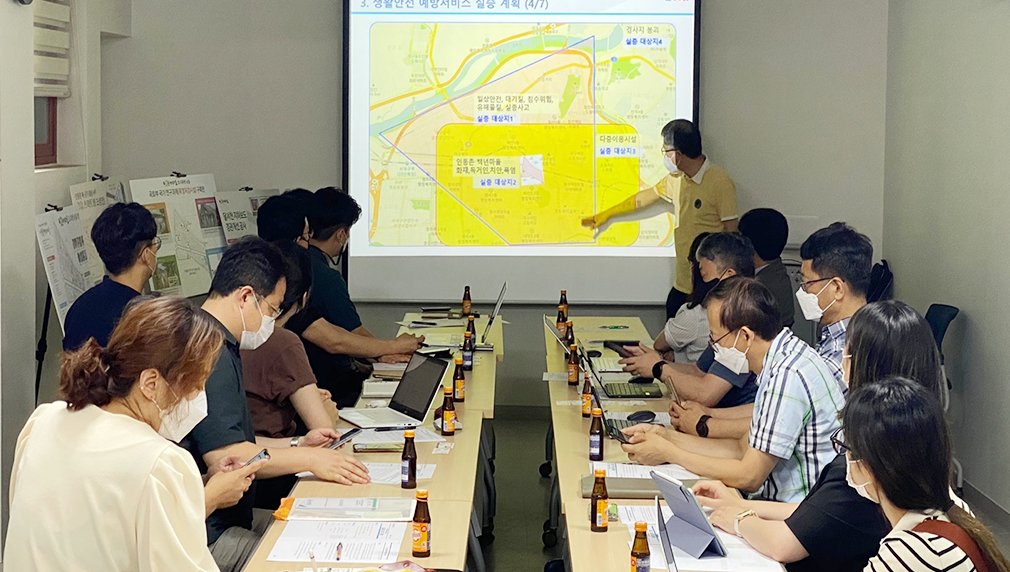
FOCUS ON ICT
ETRI develops a ‘K-Guard’ app that protects daily safety
- Pilot service : Real-time notifications of daily life safety hazards
such as flooding, fire, and disappearance for risk prevention
- Trial service : Next year in Daegu City
Electronics and Telecommunications Research Institute (ETRI) has developed a smartphone app that informs citizens’ daily lives of various safety hazards in real-time, such as flooding, fire, and disappearance. Its pilot test was undertaken for three months in the west district of Daegu city and its trial service is going to start in more districts from April next year.
ETRI announced that it would demonstrate a life safety service that informs and prevents safety risks in daily life in the Seo-gu area of Daegu and it’s Indongchon Baeknyeon Village for three months from August with support of the LH Land and Housing Institute and Daegu Metropolitan City.
‘K-Guard,’ a life safety risk prevention service app developed by ETRI, provides 11 safety risk notification services such as flooding, fire spreading, daily life hazards, safety for living alone, disappearance accidents according to local situations.
In particular, these safety notification services can be provided to users through customization according to their location, age, and disabilities. The same hazard may be not the same level of risk according to user characteristics such as disabled or non-disabled, pregnancy, and even old age. User-customized risk prevention services can enable users to get friendly with acceptance and easier to use.

When approaching the hazard place, the app service provides automatic real-time notifications in voice, vibration, text, etc., by preference selection. Users don’t have to open the app and check safety concerns. They can notice risk situations and get careful.
The daily safety service is a service that contributes to community safety by informing users of risks exposed throughout the neighborhood through voluntary participation, such as active reporting by users for the safety of our neighborhood.
When a user reports via the app by taking photos of nearby risk factors, such as sinkholes, manhole cover breakage, exposed electric wires, glass fragments, and damage to pedestrian paths such as sidewalks, stairs, and construction sites, their locations are automatically recognized based on GPS. Then, blind people, the elderly, and nearby pedestrians can be notified in real-time when they pass such risky areas and can prevent safety accidents by paying attention and bypassing hazardous places.
ETRI developed this system based on standards to be easily extendable for new services and interoperable with other information systems providing safety-related open data. K-Guard’s safety services, such as fire spreading alarms, flooding notices, air quality problems, and landslide risks, utilized open data built by government ministries, local governments, and public organizations. The research team explained that since it was developed based on standards, it could effectively link and expand with public information systems, and it can respond quickly when new services are grafted in the future.

In addition, ETRI and joint research partners conducted pilot services for functional demonstration and evaluation in the Seo-gu district, Daegu City, and its Indong-chon Baeknyeon Village. About 200 app users and 10 people to report risk places participated for 3 months. Its research team plans to provide the improved 'K-Guard' app as a trial service to more users and city districts next year by improving the app’s user interface, service quality, and user-dedicated customization based on the 3-month pilot service results.
This research was carried out with the support of the Ministry of Interior and Safety for the “Life Safety Prevention Service Technology Development Project (research period: 5 years (2019-2023) and about 21 billion-won)”. It also interworked with the city safety infrastructure built by the “National Strategic Smart City Program” of the Ministry of Land, Infrastructure and Transport.
Kim Hyoung-Jun, ETRI’s vice president for Intelligent Convergence Research Institute, who is in charge of this research project, said, “the development of ICT has led to citizen’s active participation greatly everywhere, and this system has linked through a standard-based service architecture with various disaster and life safety data of the government, local governments, and public organizations to provide 11 daily lives safety services. It is meaningful that this safety protection system will complement the government-led disaster response and public safety services by the support of building a safe community by citizens' participation in safety around daily life.”

Shin Gak Kang, Assistant Vice President
Standards & Open Source Research Division
(+82-42-860-6117, sgkang@etri.re.kr)
Jun Seob Lee, Director
ICT convergence standards Research section
(+82-42-860-3859, juns@etri.re.kr)
